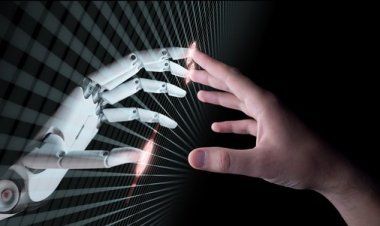The Double-Edged Sword: How AI Can Fuel Human Laziness
Explore how AI's convenience may inadvertently promote laziness. Discover strategies to balance technological assistance with active engagement for a well-rounded lifestyle.

The development of artificial intelligence (AI) has brought revolutionary improvements across a wide range of businesses, streamlining processes and making a variety of activities more convenient. Concerns have been raised, however, concerning the possibility that AI will encourage humans to become more slothful as it takes on increasingly menial work. In this blog, we will investigate the ways in which artificial intelligence (AI) might contribute to a sedentary lifestyle and address ideas for striking a balance between the aid provided by technology and the work put in by humans.
Automation and Convenience
There is no denying that the powers of AI to automate tasks have made day-to-day life easier. Voice assistants and other technological advancements have made it possible to complete jobs that previously required a great deal of human labor with just a single command. This not only improves efficiency but also decreases the requirement for carrying out activities that require physical exertion.
Physical Inactivity in Everyday Life
Inadvertently discouraging physical exercise is one of the unintended consequences of devices driven by AI. Online shopping, food delivery apps, and digital assistants, for example, lessen the need for people to physically run errands, which may result in a general reduction in the amount of time spent moving around.
Read Also:https://whyinq.com/getting-back-on-track-your-roadmap-to-rejuvenation
Intellectual Laziness
It's possible that the ease with which information can be retrieved through AI-driven search engines and personal assistants can be contributing to a drop in critical thinking. Rather than wondering and investigating, people might opt for quick and easily available answers, which would result in reduced cognitive engagement.
Erosion of Skill Development
It is possible that the ability of AI to handle complicated jobs would dissuade individuals from obtaining particular abilities. One's ability to interpret maps and navigate independently could suffer if they rely excessively on navigation apps, for instance.
Dependence on AI Decision-Making
The use of data in AI decision-making can lead to an unhealthy reliance on the technology. It is possible for people to defer their judgment to AI algorithms, whether it be for financial choices or personal judgments. This can contribute to a loss of ability to make independent decisions.
Striking a Balance
Conscious utilization It's important to be conscious of how and when you utilize AI. Rely on its help only for chores that truly call for high levels of productivity so that you can concentrate on undertaking more important endeavors.
Move Your Body: In spite of the conveniences offered by AI, you should put more emphasis on moving your body. Exercise on a consistent basis not only improves one's physical health but also their emotional well-being.
Continuous Learning: Put your mind to the test by participating in activities that stretch it. Take up hobbies, read widely, and make it a point to continuously educate yourself to combat intellectual sloth.
Skill Acquisition Through Manual Labor: Make an attempt to acquire manual skills that can be difficult to replicate by AI. Develop your skills in areas such as cooking and other activities that use your hands.
Thinking Critically To encourage critical thinking and problem-solving in others. Your ability to examine events from a variety of perspectives is still essential, even when you have access to data provided by AI.
Conclusion
It is essential to be aware of the potential influence that AI could have on human activity levels as well as cognitive engagement, despite the fact that AI provides enormous benefits. The most important thing is to find a happy medium between human labor and technological aid. We can take advantage of the benefits of AI without falling prey to the traps of lethargy if we carefully manage how we use AI, encourage physical activity, sustain intellectual curiosity, and cultivate distinctive human skills.













